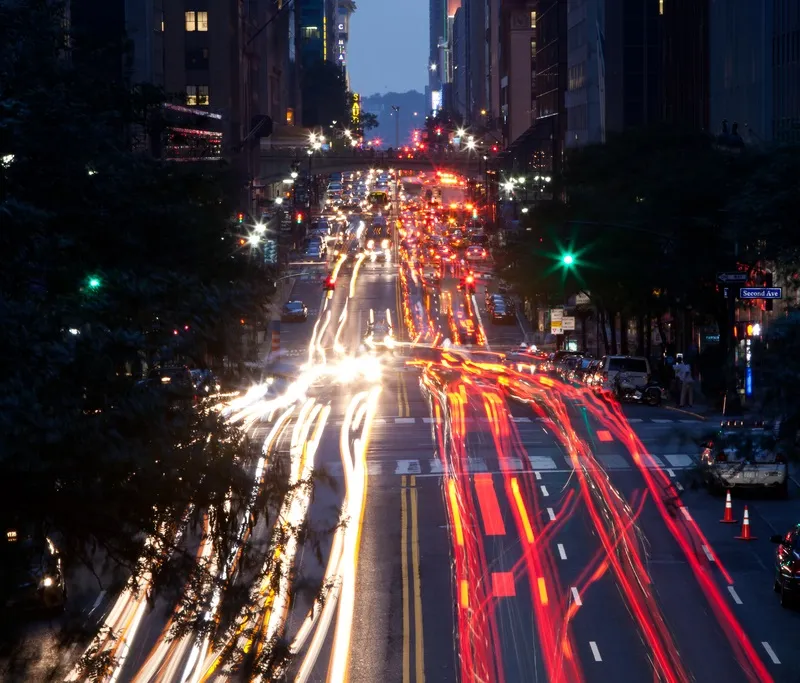The US Department of Transportation (USDOT) has partnered with Vulcan in the Smart City challenge to mayors and city leaders across America to integrate emerging technology into their transportation networks.
The winning city will be awarded up to US$40 million from the US DOT (funding subject to future appropriations) to implement bold, data-driven ideas by making transportation safer, easier, and more reliable. In addition, Paul G. Allen’s Vulcan has announced its intention to award up to US$10 millio
December 9, 2015
Read time: 2 mins
The 324 US Department of Transportation (USDOT) has partnered with Vulcan in the Smart City challenge to mayors and city leaders across America to integrate emerging technology into their transportation networks.
The winning city will be awarded up to US$40 million from the US DOT (funding subject to future appropriations) to implement bold, data-driven ideas by making transportation safer, easier, and more reliable. In addition, Paul G. Allen’s Vulcan has announced its intention to award up to US$10 million to the US DOT winner of the challenge. The winning city will need to work with Vulcan in order to secure this funding.
The Smart City Challenge builds on the USDOT’s Beyond Traffic draft report issued in February 2015. This public-private collaboration represents the US DOT and Vulcan’s joint belief that creativity and innovation will be absolutely essential to meeting the significant transportation challenges of the future. Lessons learned from this competition will be used in other cities to improve networks nationwide and demonstrate a practical path to replacing carbon-based fuel consumption. US DOT welcomes the participation of other entities who share the vision and goals in the Notice of Funding Opportunity found here. (link www.transportation.gov/smartcity/nofo)
“This is an opportunity for the winning city to define what it means to be a ‘Smart City’ when it comes to transportation. We encourage cities to develop their own unique vision, partnerships and blueprints to demonstrate to the world what a fully integrated, forward-looking transportation network looks like,” said US Transportation Secretary Anthony Foxx. “America can remain the global leader in maintaining the safest, most efficient system in the world: I am looking for Mayors who share that belief to join us in pushing the boundaries of what is possible.”
Interested cities should submit a high-level description of their vision of a Smart City by 4 February 2016, consistent with the Notice of Funding Opportunity. US DOT will then announce five finalists in March 2016, who will then compete for up to US$40 million to be awarded to one city in June 2016.
The winning city will be awarded up to US$40 million from the US DOT (funding subject to future appropriations) to implement bold, data-driven ideas by making transportation safer, easier, and more reliable. In addition, Paul G. Allen’s Vulcan has announced its intention to award up to US$10 million to the US DOT winner of the challenge. The winning city will need to work with Vulcan in order to secure this funding.
The Smart City Challenge builds on the USDOT’s Beyond Traffic draft report issued in February 2015. This public-private collaboration represents the US DOT and Vulcan’s joint belief that creativity and innovation will be absolutely essential to meeting the significant transportation challenges of the future. Lessons learned from this competition will be used in other cities to improve networks nationwide and demonstrate a practical path to replacing carbon-based fuel consumption. US DOT welcomes the participation of other entities who share the vision and goals in the Notice of Funding Opportunity found here. (link www.transportation.gov/smartcity/nofo)
“This is an opportunity for the winning city to define what it means to be a ‘Smart City’ when it comes to transportation. We encourage cities to develop their own unique vision, partnerships and blueprints to demonstrate to the world what a fully integrated, forward-looking transportation network looks like,” said US Transportation Secretary Anthony Foxx. “America can remain the global leader in maintaining the safest, most efficient system in the world: I am looking for Mayors who share that belief to join us in pushing the boundaries of what is possible.”
Interested cities should submit a high-level description of their vision of a Smart City by 4 February 2016, consistent with the Notice of Funding Opportunity. US DOT will then announce five finalists in March 2016, who will then compete for up to US$40 million to be awarded to one city in June 2016.









